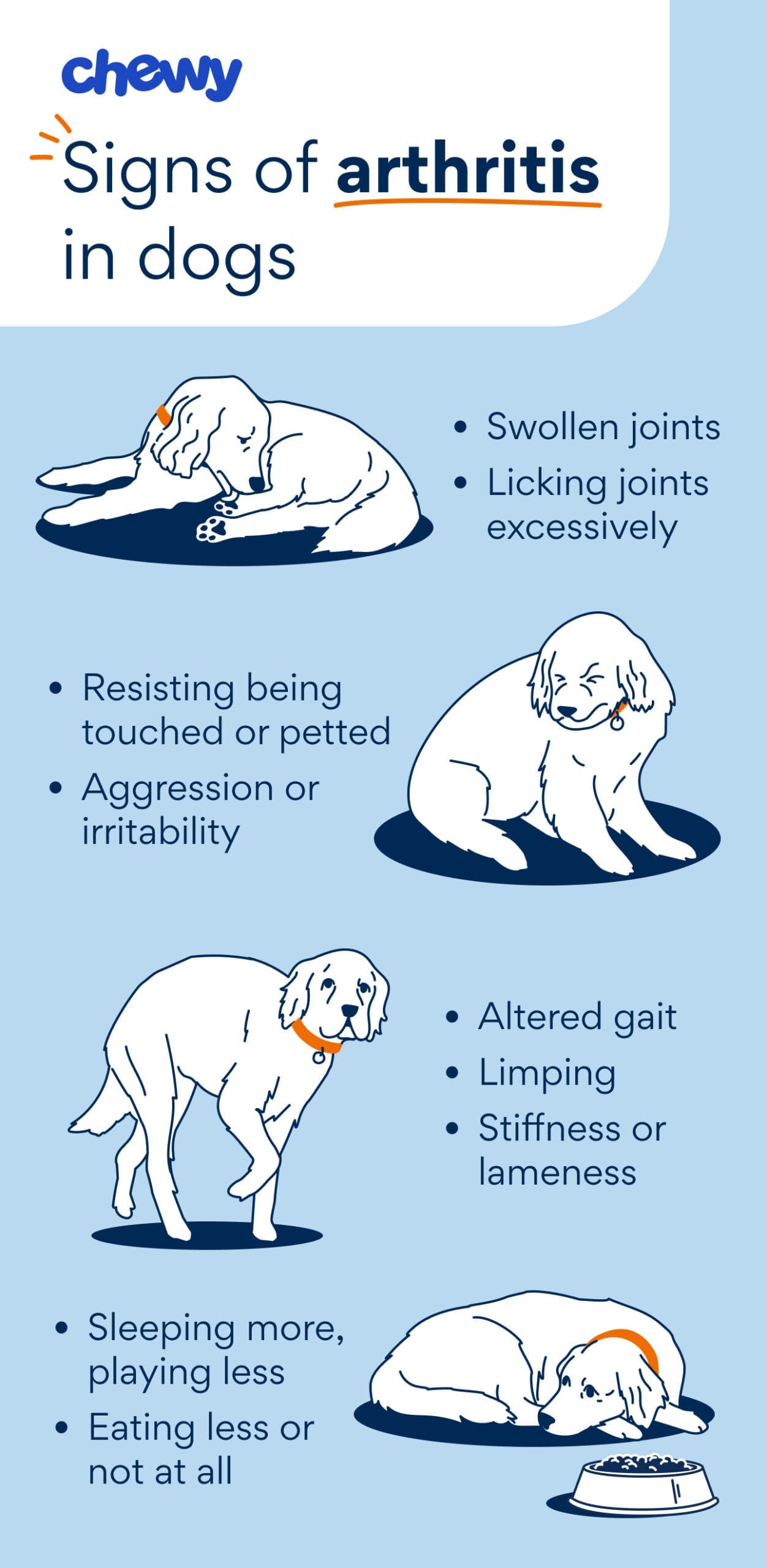Arthritis, particularly osteoarthritis, is a prevalent condition affecting many dogs due to injury, developmental issues, or the natural wear and tear of aging. This painful ailment stems from abnormal changes within a dog’s joints, leading to chronic inflammation. Dogs with arthritis can experience discomfort ranging from mild to severe, and as the condition progresses over time, effective treatment becomes a priority for dedicated pet owners.
Veterinarians often incorporate specific pain relief medications and arthritis management plans into a dog’s treatment, sometimes including dietary adjustments to alleviate symptoms. However, for those seeking alternatives to prescription medications, a variety of natural treatments can help manage arthritis pain in dogs.
Recognizing Arthritis in Your Canine Companion
The manifestations of arthritis vary significantly among dogs. Dr. Clay Bernard notes that the observable signs depend on a dog’s size, age, the duration of the condition, their tolerance for discomfort, immune system, and overall activity level. Pet parents might notice limping, a slower response when rising from a resting position, or a reduced capacity for long walks. Dogs with arthritis may refrain from jumping on or off furniture and show reluctance to climb stairs or engage in energetic play.
Dr. Jennifer Luna-Repose highlights that some signs of arthritis in dogs are more subtle, such as increased sleeping, weight gain, loss of muscle mass, apparent depression, or a diminished appetite. Environmental temperatures can also influence a dog’s response to arthritis, with some showing more discomfort in hot or cold weather. Temperament changes can also occur, especially when touching sensitive areas.
If you suspect your dog has arthritis, a veterinary consultation is crucial. Luna-Repose emphasizes that even apparent signs of arthritis can be indicative of other medical conditions, making a veterinarian’s diagnosis essential.
Exploring Natural Treatments for Canine Arthritis Pain
While veterinary expertise is paramount, prescribed pain medications for arthritis can sometimes lead to adverse effects. Arthritis medication can potentially harm a dog’s internal organs, according to Dr. Darla Rewers, DVM. She explains that dogs on these medications often require regular blood work to monitor liver and kidney function, as NSAIDs and steroids can also cause stomach ulcers.
This is where natural treatments emerge as a viable alternative for concerned pet owners.
Herbal and Supplemental Support for Canine Arthritis
The specific natural arthritis products recommended for dogs will depend on their individual needs. A wide array of alternative medications and dog supplements are available. It is advisable to consult with a holistic veterinarian or one trained in Traditional Chinese Veterinary Herbal Medicine before administering any herbs or supplements to your pet.
Some well-regarded Chinese herbal formulas for canine arthritis include Ligusticum, known as a natural pain reliever, and Corydalis, which helps alleviate aches and discomfort. An herbal blend called Hindquarter Weakness is also used to strengthen the hind legs of affected animals.
Dr. Bernard points out the potent anti-inflammatory properties of ancient Indian herbs like turmeric and boswellia. Omega-3 fatty acids found in krill, sardine, or flaxseed oils also offer similar benefits. Additionally, supplements containing glucosamine, chondroitin, and MSM can aid in preserving and nourishing the cartilage that becomes damaged in arthritic joints. Luna-Repose also suggests bone broth as an economical preventative measure to help build cartilage and protect joints in dogs.
Acupuncture: A Potential Benefit for Arthritic Dogs
Veterinary acupuncture is another option recommended by Luna-Repose for naturally relieving arthritis pain in pets. She explains that it works by stimulating nerves, enhancing blood circulation, relaxing muscle spasms, and prompting the release of natural pain-relieving hormones like endorphins and cortisol. The procedure is generally well-tolerated and nearly pain-free for dogs. Bernard adds that consistent acupuncture treatments lead to increasingly longer-lasting benefits, helping the body achieve balance.
Additional Natural Avenues for Arthritis Management
Beyond herbs, supplements, and acupuncture, some veterinarians advocate for low-level laser therapy to assist with arthritis pain in dogs. Luna-Repose describes this procedure as utilizing specific light wavelengths to achieve therapeutic effects, including accelerated wound healing, pain reduction, improved circulation, and decreased swelling.
She also mentions the FDA-cleared Assisi Loop, which, while distinct from laser therapy, employs targeted Pulsed Electromagnetic Field Therapy (tPEMT) to support the body’s natural anti-inflammatory processes. This can enhance nitric oxide production, thereby speeding up the healing of both soft and hard tissues. Other commonly recommended complementary therapies include TENS (transcutaneous electrical stimulation) and extracorporeal shock wave therapy.
Engaging in canine massage or enrolling your dog in aquatic therapy or other forms of physical therapy can also be beneficial. Professional canine massage therapists can be sought out, or owners can learn massage techniques for home use. Luna-Repose notes that massage therapy can improve circulation, reduce stress, release endorphins, and alleviate trigger points. The buoyancy provided by water in aquatic therapy allows arthritic dogs to remain active and build muscle through swimming or using an underwater treadmill.
The Crucial Role of Diet and Weight Management
For any chronic inflammatory condition, a healthy, balanced diet is fundamental for recovery and management, particularly as canine obesity is frequently linked to arthritis. Bernard advocates for fresh, species-specific foods like raw or home-cooked diets, emphasizing the importance of probiotics for gut health, as inflammation often originates in the gut. However, pet owners should consult their veterinarians before adopting raw or home-cooked diets, as these can sometimes be contaminated or nutritionally incomplete.
Maintaining your dog’s activity level is also vital for weight management and, consequently, for managing arthritis pain. Rewers states that excess body weight places additional pressure on the joints. Even if a dog has mobility challenges, short, frequent walks or indoor games like hide-and-seek can help keep them active.
Any pet parent considering natural arthritis treatments that involve dietary or lifestyle changes should always consult with a trusted veterinarian to establish the most effective pain management and treatment plan for their dog.

